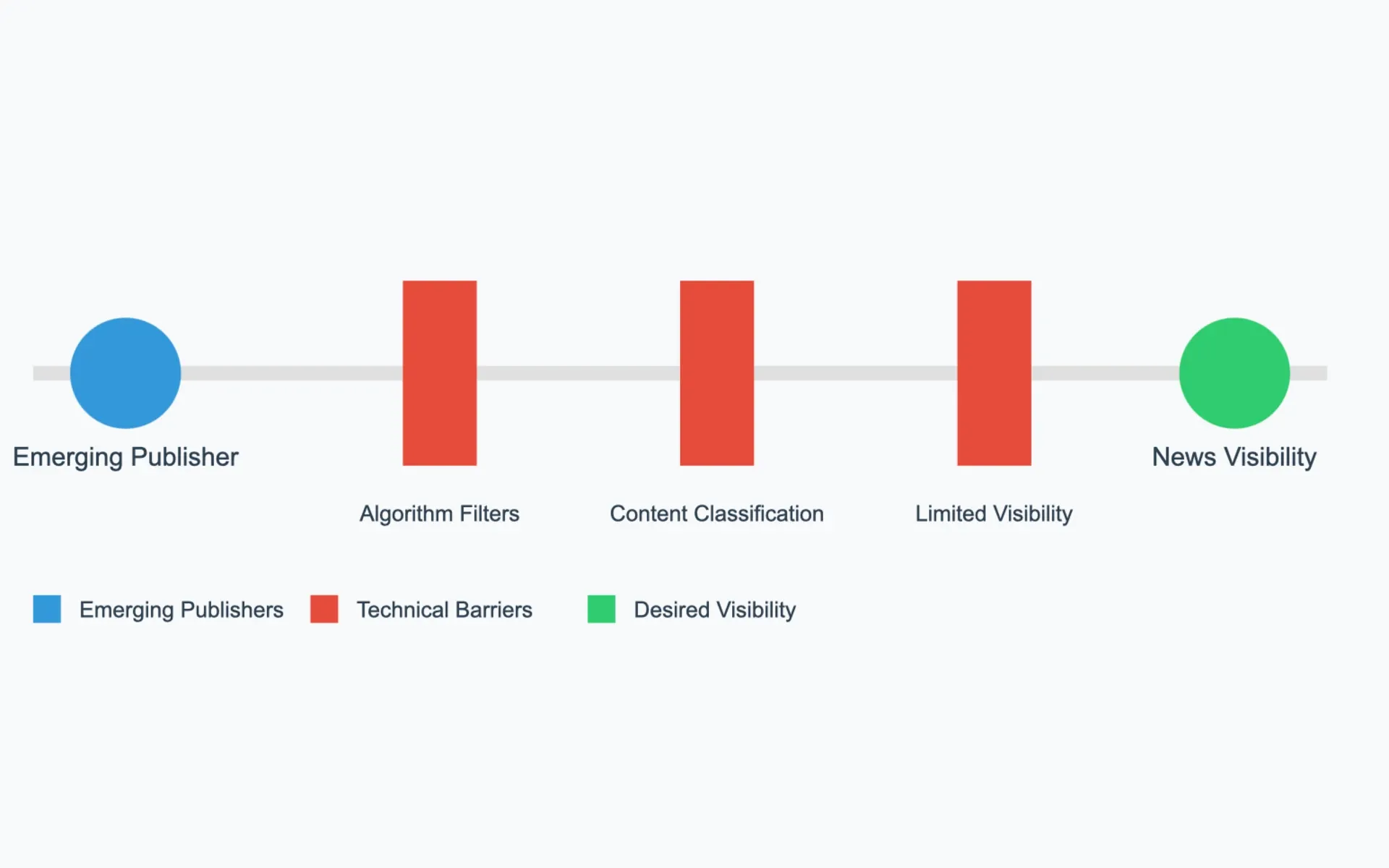Google's organic news challenges hit smaller publishers hard
Analysis shows Google's helpful content update limits visibility for original reporting, even when stories are widely cited by major media outlets.

Two weeks ago, a significant case highlighted the ongoing challenges that smaller publishers face with Google News visibility. According to Music Mayhem Magazine's founder Andrew Wendowski, his outlet broke a viral story about Post Malone's $20,000 tip to a Houston bartender on Christmas Eve, which was subsequently picked up by 45 major media outlets including Rolling Stone, Billboard, and People Magazine, alongside 23 radio stations.
Despite being the original source and receiving widespread citation from authoritative publishers, Music Mayhem's coverage failed to appear in Google News or Top Stories sections. According to SEO expert Lily Ray's analysis posted on January 7, 2025, sites impacted by Google's Helpful Content Update remain ineligible for these premium search features, regardless of story virality or citation volume.

The case represents a structural challenge in digital news distribution. Music Mayhem's story achieved significant reach through traditional media amplification, with dozens of major outlets linking back to their original reporting. However, the site's classification under Google's content quality systems prevented direct visibility in news surfaces.
"I had an article go viral yesterday and had dozens of major media outlet websites link back to me, yet I don't even appear in Google News, Top Stories or the first pages of search on Google for the topic," Wendowski stated on social media.
The impact extends beyond single stories. According to Wendowski's public statements, his website traffic dropped from nearly 3 million monthly views to under 100,000 following Google's algorithm updates, despite maintaining original reporting practices.
This pattern appears to conflict with Google's stated 2019 commitment to elevate original reporting in news results. While the policy aims to recognize outlets that break news stories, the classification system continues to limit visibility for smaller publishers, even when they produce widely-cited original journalism.
The technical limitations stem from Google's automated content evaluation systems. According to Google's April 25, 2024 announcement, the company is transitioning to fully automated creation of news publication pages. The system evaluates content based on factors including relevance, prominence, authoritativeness, freshness, location and language.
Industry experts suggest the case reveals ongoing tensions between automated quality control systems and journalistic practice. "I get why Google has mechanisms in place to prevent low-quality sites from appearing in Top Stories, etc. but this just seems wrong to me," noted Ray, highlighting how current systems may inadvertently restrict legitimate breaking news coverage.
The incident provides quantitative insight into digital news distribution patterns. Music Mayhem's original story received attribution from:
- 45 major news outlets
- 23 radio stations
- Multiple international publishers
- Leading industry trade publications
Yet the originating coverage remained absent from Google's news products, demonstrating how algorithmic classifications can override traditional journalistic attribution practices in determining content visibility.
For smaller publishers, the barriers to entry in Google News surfaces create significant operational challenges. Even when producing original reporting that meets traditional journalistic standards for accuracy and newsworthiness, as demonstrated by widespread pickup from established media brands, technical classifications can restrict reach and sustainability.
The situation highlights broader questions about the relationship between automated content systems and journalism's core function of breaking news. While Google's systems aim to surface quality information, cases like Music Mayhem's suggest they may also create obstacles for emerging digital publishers focused on original reporting.


